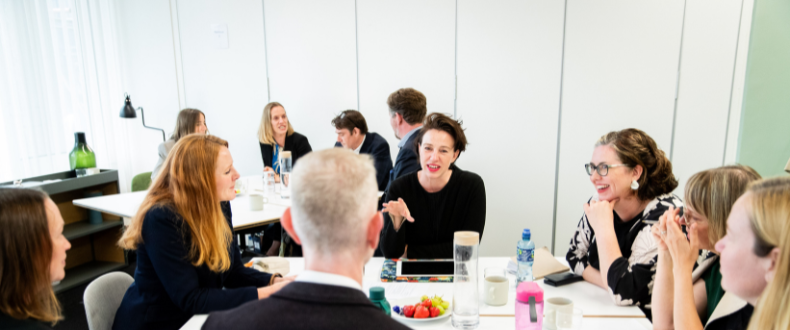Company News • Insight & Opinion • News
Key Observations & Recommendations for Building Capacity
12 June 2025
In the final instalment of our series, Gordon Cox, Academic and Education Director, explores how institutions can build stronger, more resilient teams by implementing practical, cost-effective strategies to enhance professional development, maximise resources, and promote long-term staff engagement and retention.
- Prioritise CASE/ IDPE Training – It is highly valued within the sector, and professionals actively seek opportunities to attend.
- Leverage Free Internal Training – If your institution offers HR-led training, make full use of these accessible and cost-effective resources.
- Utilise Staff & Alumni Discounts – Many academic institutions provide discounted professional development opportunities, such as business school programmes—ensure your team is aware and can take advantage of them.
- Encourage Team Involvement in Training Decisions – Establish a group to discuss needs and foster staff buy-in for development initiatives.
- Dedicate Time for Professional Development – Scheduling set periods for professional development ensures staff prioritise their growth without disrupting workflow. Avoid ad hoc requests that leave colleagues waiting for responses.
- Optimise Budgets – With costs being a major concern, consider more efficient spending, such as hiring a consultant to deliver sessions to a group rather than sending individuals to expensive conferences. Partnering with neighbouring institutions can also create economies of scale.
- Invest in Retention Over Recruitment—Recruitment is more costly and disruptive than investing in the development of your staff as a tool for retaining them. Reassess your budget allocations to see if greater investment in development could reduce long-term hiring costs.
- Prioritise Practical Training – Professionals want to upskill within their current roles rather than transition sectors. Investing in relevant, hands-on training helps them grow and succeed.
- Offer Course Lists for Customisation – People appreciate inspiration from structured options but prefer the flexibility to tailor content to their team’s needs. A hybrid approach works best.
- Avoid Online Training – Professionals prefer in-person learning experiences that facilitate engagement and networking, rather than remote sessions.
- Support Leaders & Fundraising Champions – Supporting academic leaders and fundraising champions enhances their ability to advocate and secure philanthropic support.
- Promote Local Community Engagement—Encourage colleagues to expand their skills through trustee roles, foster professional development, and strengthen ties with the wider community.
How Philanthropy Company could help address those needs
We have over twenty years of experience delivering capacity building, training, developing and coaching. We would be delighted to discuss providing a bespoke session that meets your needs. Based on the survey responses, you wanted the following:
Leadership
- Leadership and management
- Project management
- Digital and technology integration
- Campaign planning and feasibility assessment
- Engaging with academics and senior internal stakeholders
Fundraising
- Major gift strategy and making the ask
- Writing a compelling case for support
- Prospecting and prospect management
- Trusts and foundations fundraising
- Collaborating with academics and senior internal stakeholders
Champions & Stakeholders
- Fundamentals of advancement
- Advancement strategy and long-term planning
- Cultivation strategies and making the ask
If you missed any of the articles leading to up to this, they can be found here:
Case Study
Leadership change and further support
- Background reading and familiarisation: Working through key background documents and institutional information to help inform our planning of the workshops.
- Discovery workshop: Half a day to meet the team, explore current ways of working, discuss team goals, learn more about challenges, working approaches and successes, discuss content and aims for the second workshop.
- Facilitated team workshop: This was informed by the discovery workshop and envisaged as an interactive session, to include supporting the team to consider future ways of working, current barriers and enablers, opportunities, wider sector influences, and brainstorming creative solutions.
- Recommendations and findings: Short, focussed (1-2 pager) on key learnings from our work and any recommendations for the future.

